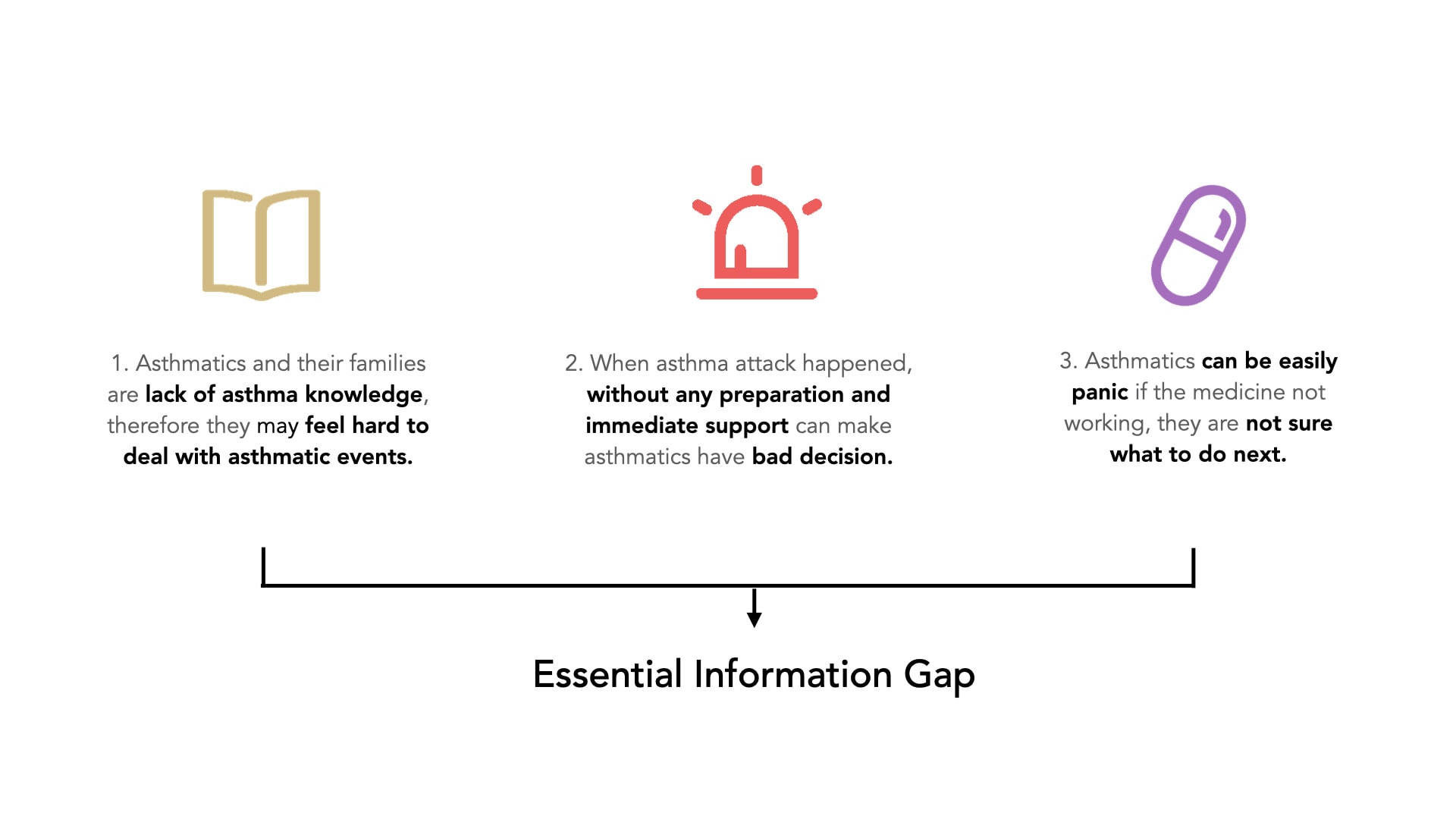Hi, I'm Sara. I'm a service designer who is interested in the public sector area. Many of my works are related to healthcare and social justice, and most of them are healthcare-related as I always get sick when I was young and spent most of my time in hospital. Therefore, I hope to use what I learned in RCA to help more people and let them get better service in the healthcare sector and other public sectors as well. If you are interested in my work, please scan the QR code on the right-hand side or just click my portfolio link.
Cihong Song

In the UK, there are over 8 million people diagnosed with asthma. Tragically, 3 people die every day because of an asthma attack. During the research stage of our project, we found out that most asthma patients find the hardest thing to overcome is to avoid panicking during an asthma attack. The reason people panic is because they and their families did not receive essential information when they were first diagnosed. If the patient and their families receive basic care and know how to deal with asthma attacks, two-thirds of asthma deaths are preventable. Currently, asthmatics and their families cannot find the essential information from the NHS system, and GPs sometimes provide different information to people which can be confusing. Therefore, we created a service E.A.S.E. that provides all newly diagnosed non-severe asthmatics and their families with unified essential information and immediate support through various mediums to better prepare for coping with any asthma-related situation in the future.

At the beginning of our project, we sent out a questionnaire and received 102 responses which helps us define the scope of our project. Then we conducted 10 interviews and 5 co-creation workshops with asthma patients and their families to figure out the user’s pain points. We found out that most asthmatics panic during asthma attacks and don’t know how to deal with it.
After analyzing the research outcome, we noticed that there is an essential information gap in the current NHS system. We uncovered the following insights: Asthmatics and their families lack asthma knowledge, therefore they may feel hard to deal with asthmatic events. Also, when an asthma attack happens, without any preparation and immediate support can lead asthmatics to make bad decisions. Lastly, asthmatics can easily panic if the medicine is inefficient and they have no idea what to do next. These insights all represent there is an essential information gap in the current service system.

We created E.A.S.E which is formed by three different elements which are a booklet, emotional cards and an app. The booklet is used to educate asthmatics and their family with basic essential information about asthma. The emotional cards are designed to eliminate people’s concerns after diagnosis. Our app is focused on supporting users when having an asthma attack and after. If users think they could calm asthma attacks by themselves, we will provide detailed first aid instructions to guide them. We have included the 'ask for help' section that users can show directly to others when they need assistance. After users have successfully calmed their asthma attack, a recording page would pop up. Making a record of each asthma attack allows users to see their long-term progress clearly.

When people first receive asthma diagnosis reports from GP/ asthma nurse, the GP provides them with our designed asthma toolkit if they have non-severe asthma. It uses to help them quickly get the needed, right and unified information from NHS to better manage and cope with asthmatic events. We think the toolkit is a suitable medium for all-aged people to access quickly.
After reading our booklet and emotional cards, users can download our app and check if they have all the things they need to be prepared before the next asthma attack happens. If a sudden asthma attack happens, asthmatics can use our app to self-manage it or ask for helps from others. We think the app is a suitable medium in an emergency that users can quickly access no matter where they are. It is necessary for the patient to take a few minutes to do a self-reflection and book an appointment with an asthma nurser/ GP even if the asthma attack is under control to reduce the possibility of the next asthma attack happening.
Show Location: Kensington campus: Darwin Building, Lower ground floor

As for choosing the asthma-related topic as my graduate project, it is because I have been diagnosed with asthma since I was young. I also experienced a life-threatening asthma attack, I hope our project could help UK non-severe asthmatics who are in the same situation as me to be prepared for asthma attacks and increase their awareness about it.